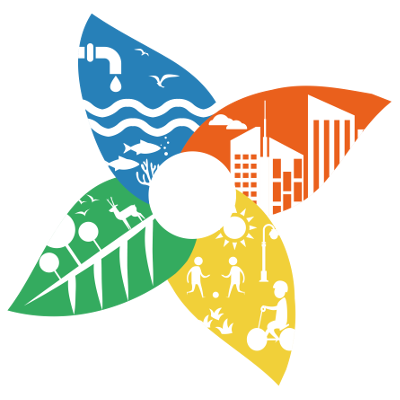Naturvation’s transdisciplinary work includes activities that support city-to-city learning and exchanges between governmental organisations, academia and other stakeholders. In this context, on 31 August 2018, Philipp Königer (landscape planner from Munich, Germany) visited Malmö (Sweden) to discuss how ecological compensation can be used as a tool to support nature-based solutions and contribute to the city’s ‘dense and green’ sustainability vision. While ecological compensation is part of the German legal planning system, Swedish cities are currently developing their own, local tools. The high level of commitment to developing such tools is due to a relative lack of environmental regulation and top-down guidance designed to support nature-based solutions.
Ecological compensation is a way to alleviate the negative impacts of new developments on urban ecosystem services; impacts are compensated for by providing new value within the same (or another) area. Compensation measures usually consist of restoring or establishing, and then managing, natural areas of value, such as nature reserves, wetlands or recreational areas. It is the last step in so-called ecological mitigation, which requires those who exploit the land to avoid, minimize or restore local impact on site before considering compensation.
Naturvation is built on a transdisciplinary effort that brings together the project’s work programmes and six Urban-Regional Innovation Partnerships (URIPs). The six URIPS are located in Barcelona (Spain), Győr (Hungary), Leipzig (Germany), Malmö (Sweden), Newcastle (United Kingdom), and Utrecht (The Netherlands). Each is convened by a municipal representative and involves stakeholders from a range of organisations, including utilities, urban developers, conservation organisations, community groups, and local businesses who are engaged in nature-based solutions and who work alongside the project’s research team.
Both URIPs and the project’s overall transdisciplinary approach are supported by ICLEI, together with a direct contact point between the URIPs and work programmes, and three knowledge brokers. Knowledge brokers are intermediaries (organizations or a person). They aim to develop relationships and networks with, among, and between producers and users of knowledge by providing linkages, knowledge sources, or knowledge itself (e.g. technical know-how, research results) to members of the network.
Knowledge brokerage is supposed to be more than a simple question-and-answer game: it is a process of co-creating and re-framing knowledge. Related roles have emerged only recently through practice and in applied research. NATURVATION sees this as an opportunity, rather than a limitation, to create new ways to communicate, fostering openness and flexibility that supports nature-based solutions. Philipp Königer’s visit to Malmö is one of the outcomes of these efforts, and we look forward to more to come.
Christine Wamsler is Professor at Lund University Centre for Sustainability Studies (LUCSUS) and knowledge broker within the Naturvation project.
